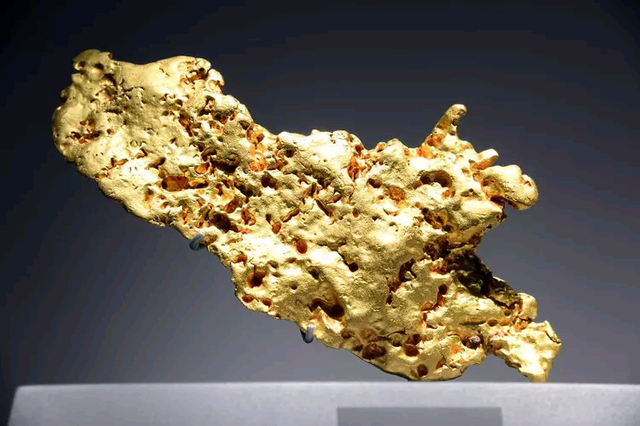The Gold Bank #NewsUpdatePart
Do you ever tried to think that where dpres the gold come from?
via google
During the formation of Earth, molten iron sank to its centre to make the core. This took with it the vast majority of the planet's precious metals -- such as gold and platinum. In fact, there are enough precious metals in the core to cover the entire surface of Earth with a four-metre thick layer.
The removal of gold to the core should leave the outer portion of Earth bereft of bling. However, precious metals are tens to thousands of times more abundant in Earth's silicate mantle than anticipated. It has previously been argued that this serendipitous over-abundance results from a cataclysmic meteorite shower that hit Earth after the core formed. The full load of meteorite gold was thus added to the mantle alone and not lost to the deep interior.
To test this theory, Dr Matthias Willbold and Professor Tim Elliott of the Bristol Isotope Group in the School of Earth Sciences analysed rocks from Greenland that are nearly four billion years old, collected by Professor Stephen Moorbath of the University of Oxford. These ancient rocks provide a unique window into the composition of our planet shortly after the formation of the core but before the proposed meteorite bombardment.
The researchers determined the tungsten isotopic composition of these rocks. Tungsten (W) is a very rare element (one gram of rock contains only about one ten-millionth of a gram of tungsten) and, like gold and other precious elements, it should have entered the core when it formed. Like most elements, tungsten is composed of several isotopes, atoms with the same chemical characteristics but slightly different masses. Isotopes provide robust fingerprints of the origin of material and the addition of meteorites to Earth would leave a diagnostic mark on its W isotope composition.
Image Copyright: Google
